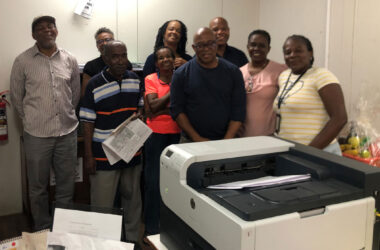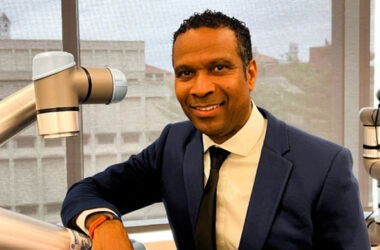IN the past few weeks our articles have been centered around advocating for survivors of sexual violence. The articles have asked that we take the time to try to understand what happens when one’s body is violated. For many of us, trying to understand what emotions may arise from a terrifying experience like that is difficult. For others we prefer to pretend that we could never truly understand that kind of pain because people who experience that pain had to have done something to bring it upon themselves.
We see survivors of sexual violence as part of the problem, they have caused their assault and as a result should deal with the consequences. It has been easier for us to empathise with the individual/individuals who have perpetrated the assault rather than to empathise with the pain of knowing that someone, usually someone you trusted, decided that they had a right to violate your personal boundaries. We, as a society excuse the perpetrators of rape on all fronts. We seem incapable of wanting to understand what a survivor of sexual violence felt during their assault and then there are those of us who know firsthand what that survivor dealt with but still find it easier to do to them what others did to them, make them feel small and insignificant and culpable in their sexual assault.
Survivors of sexual violence wage a constant internal battle about what they could have done differently to avoid or alter the events that led up to their assault. We as a society jump in and twist the knife a little deeper, telling them that you could have done something to stop or prevent another human being from forcibly deciding that your body wasn’t yours to decide what to do with it. We constantly let survivors know that their pain and suffering isn’t important to us because on some level they wanted this, they made this happen they did nothing to stop this, or they just misunderstood what was happening.
As we continue on in this week’s article, I would like you to pay attention to how your body is digesting what you are reading. Our articles, while informative, can be triggering, they may bring back unwanted or buried memories. They may cause flashbacks, they may cause your heart to race and your palms and body to become sweaty. Should you start experiencing any anxiety, or fear I want you to take a moment, put down the article and try to do some breathing exercises. I want you to take in your environment and remind yourself that in this moment I am safe where I am. I want you to remind yourself that in this moment, no one can hurt you. As we continue on with our healing journey’s it is important that we listen to our body; there is a time to push yourself but there is also a time to be gentle, as you get to know your body and your limits you will know when to be gentle and stop and when you can push yourself a bit more. Healing is a personal journey, no two people walk the same path and no one can tell you what your healing should look like. Learn to listen to your body, learn to listen to what it is telling you that it needs to heal the wounds, realize that in many ways you are nursing yourself back from an injury whether physical or psychological or both and that requires time and patience.
In the article this week I thought we could discuss a little more about why survivors choose to keep their stories to themselves. We want survivors to feel validated in their decision to share their stories and how those stories are shared but we also need to point out that the current environment makes that very difficult. Sexual violence leaves many survivors in a space of uncertainty; do I share my story, who do I share it with, how will they react, will I be blamed, should I go to the authorities, should I go to a counselor, should I go to a friend or priest or doctor or teacher or family member or do I keep it to myself?
Many survivors wrestle with the idea of confiding in someone fearing that they will be blamed, shamed or humiliated into silence. Do I sit down and share with you a painful and terrifying secret or do I decide that sharing my story is only going to cause more pain? As a survivor, who shared my own story, I wonder have you ever gotten the question, why didn’t you tell me, what took you so long to share? If you have then you know the mixed emotions that follow, would telling have helped me? Would it have made it easier for me after my assault? We play the what if game with ourselves yet again because society forces us into silence but they guilt us into feeling like had we spoken out sooner things would have been different. The truth is we will never truly know. Often we are validated in our decision to not speak up sooner as when we do share our stories we are often interrogated on the assault by those who you expected to care that you were hurt, those you expected would believe that you didn’t make up a story but were truly hurt. Those who understand that talking about sexual violence doesn’t come easy, it comes at grave price many of us choose to pay.
Sexual Violence is often a crime that boils down to he said she said, but often what happens is we take what he said as the truth, we take what he said and make him the victim, we take what he said and villainize the actual victim/survivor. We find it hard to face the reality that we know people who find it acceptable, pleasurable and necessary to violate the personal boundaries of another human being. While it is not easy to acknowledge that we know people who don’t care how their actions hurt and damage others, it is a reality. It serves no purpose to continue denying what is plainly evident. It serves no purpose to continue to blame survivors of sexual violence for crimes they DID NOT CAUSE, for crimes they DID NOT PARTICIPATE IN. Speaking about sexual violence as a survivor/victim isn’t easy, you are sharing very personal details that make you feel very vulnerable, that make you relive the incident over and over again. So the next time someone chooses to confide in you take the time to listen and not judge, take the time to hear what the victim/ survivor is saying. Offer a listening ear and support, it isn’t your place to dictate what they should or should not do, how they should or shouldn’t handle their assault, how they should or shouldn’t choose to heal.
To the survivors reading this article, to those supporting survivors sharing their stories, do it when and if you feel you are ready to. Ignore those who ask why you took so long. Nine times out of 10, you trusted your gut about the reaction you thought you would have gotten and you were sadly proven right. You deserve to feel safe and ready sharing your story, you deserve to feel that sharing your story will not result in your being interrogated, villainized and further victimized. There is no correct time to share other than when you feel you’re ready. It took me until the age of 26 to truly revisit my sexual assault. It took me until the age of 26 to decide I shouldn’t be carrying the shame for something I didn’t do. It takes time, because after sharing your story there’s so n much that’s unearthed. So take your time, this is your story to be told on your time when you feel ready.













